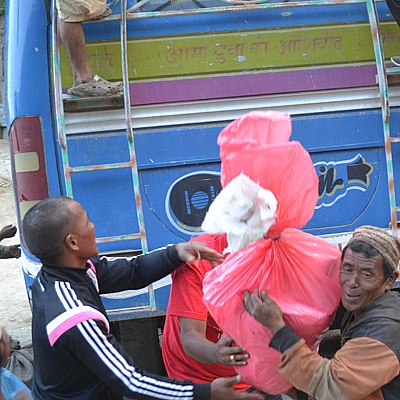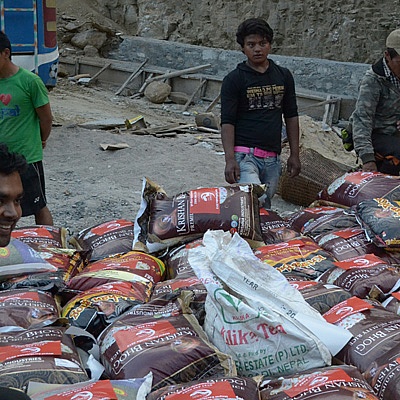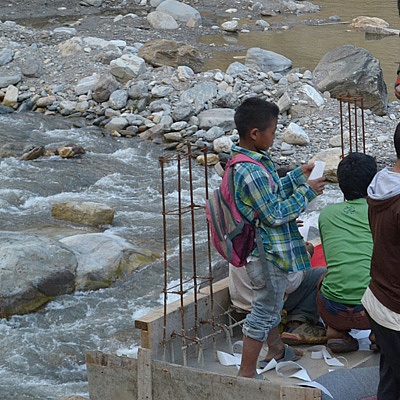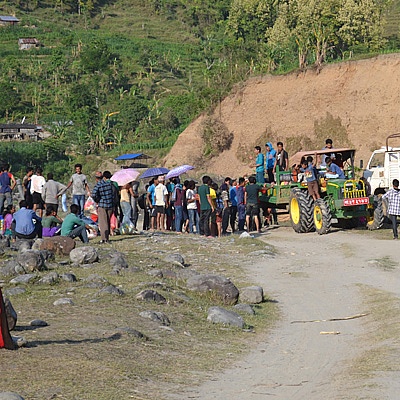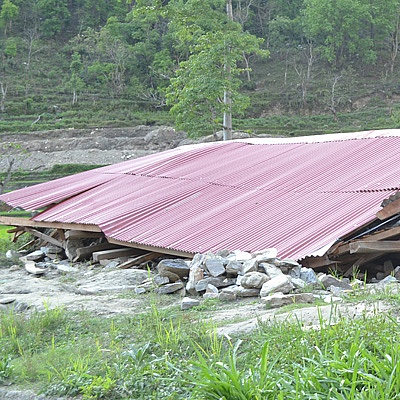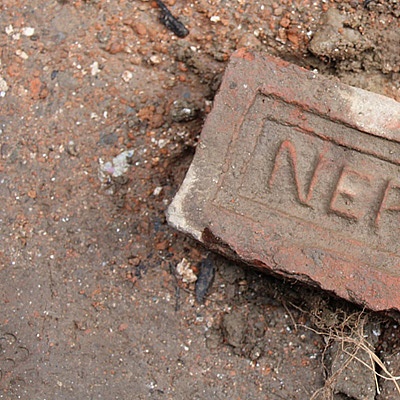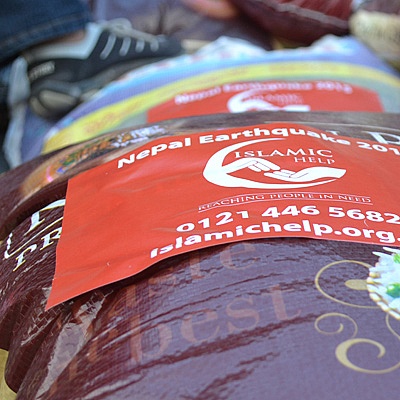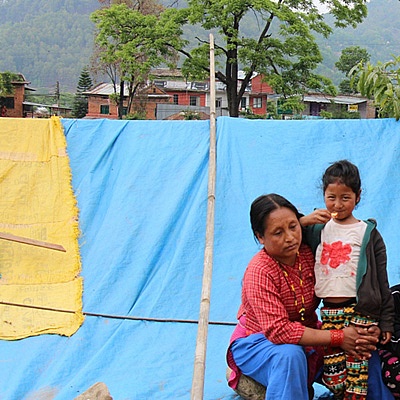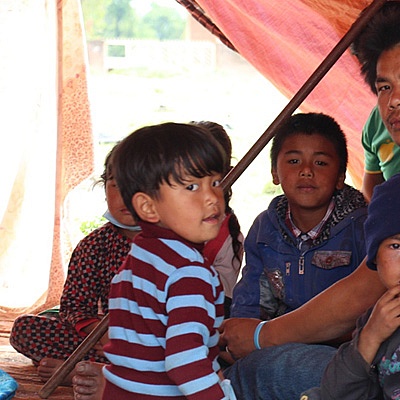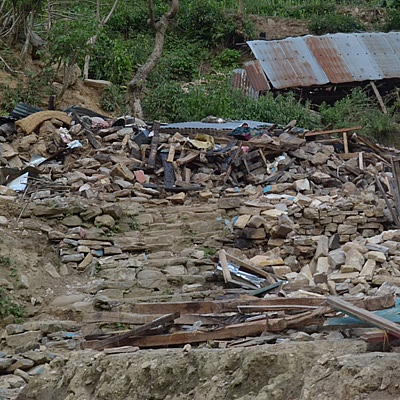Islamic Help on the ground in Nepal
Islamic Help is in Nepal helping victims of the devastating earthquake.
This is iHelp campaigns manager Toyris Miah’s account from the scene.
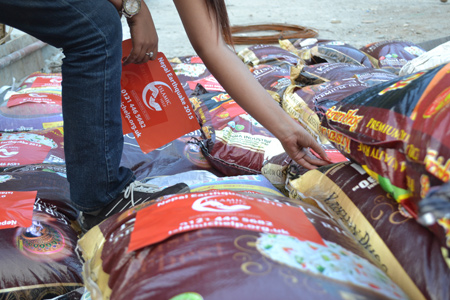
“When I first landed in Kathmandu, the only sign that a disaster had taken place was the various piles of relief aid being flown in by different countries and aid agencies. However, knowing that millions of people in Nepal are in urgent need of relief aid, it was obvious that the stock piles I could see were clearly not enough.”
Toyris Miah
I spent the next day doing an assessment of two villages in Kathmandu - Michigaun and Kitipur - which had been been affected by the earthquake, Michigaun being the worst hit of the two.
At least 30% of the houses had been completely destroyed and a further 10-20% were uninhabitable because of severe damage to their structures. Families were living in makeshift tents, assembled using bits of scrap material like used plastic bags and transparent table coverings.
“On the day I visited the rain had stopped, otherwise as well as being homeless, hungry and in a number of cases injured, they would also have been battling against the elements. Thanks to the sun coming out, the families were able to dig through the rubble to try and reclaim any of their possessions that had been buried, simple things like clothes.
When I spoke to one home owner and asked her what she was looking for she responded: “I just want to change my clothes, I’ve been wearing this since Saturday, I have nothing else, it’s all buried.”
That afternoon I was due to go to Pokhara which is a 25-minute domestic flight away. Due to the relief activities and search and rescue teams filling up the airspace, the flight was delayed for approximately 2 hours. Eventually I managed to board the flight. However we did not land in Pokhara. The flight had to make a U-turn after reaching Pokhara airport due to extreme rain and heavy winds making it extremely unsafe to land.
I managed to arrive in Pokhara on Sunday afternoon. During the flight, I spoke to some of the local residents who were returning about the purpose of my visit. They were shocked when I told them that I plan to go to Gorkha. Nearly every person said something along the lines of “It’s very dangerous, be careful, they’ve been badly affected there, people are still waiting to receive aid”.
Pokhara is an extremely fortunate place. It largely survived the earthquake, it’s almost like the place was completely untouched. Buildings are still standing strong while new ones are still being constructed.
At the meeting with our delivery partners in Pokhara, The Mountain Trust (TMT), there was a discussion about the delivery and the findings of two TMT volunteers who had traveled to Gorkha after the quake and spent two days with families from 7 different villages doing a needs assessment.
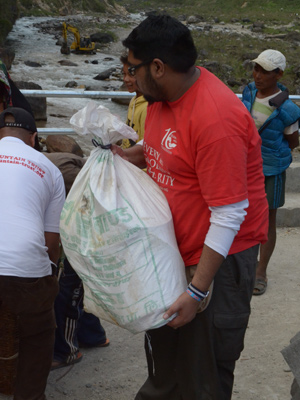
We all agreed it was essential for us to add some new items to our relief packs such as soap, women’s sanitary pads, cloths and cooking equipment on top of the other essential items we were due to provide.
We set out to purchase the supplies and were greeted by shop owners with warm hearts -they gave us discounted prices and on top of this threw in extra items for free. For example, we purchased 100 sarees to distribute and the shop owner included an extra 28 at no extra cost.
The good were all delivered to a local hotel which had offered its facilities as a sorting and storage unit. The hotel owner is a big supporter of The Mountain Trust and is trying to do his best to help the relief efforts, even using his business links to help us purchase stocks at a discounted price.
We decided to purchase items locally from Pokhara as they were quicker to get hold of, therefore quicker to distribute. It was also a good way for us to benefit the community further as many of the people who work in Pokhara have family living in areas that have been badly affected such as Gorkha.
After all the goods had arrived, the staff from the hotel restaurant came out to help us pack and sort everything. Still in their uniforms as chefs and waiters, they just wanted to do whatever they could to help.
Packing and sorting the goods carried on until the late night and wasn’t completed until the next day as we still had tents and blankets to be delivered early morning.
Read about the aid delivery in Gorkha here.

